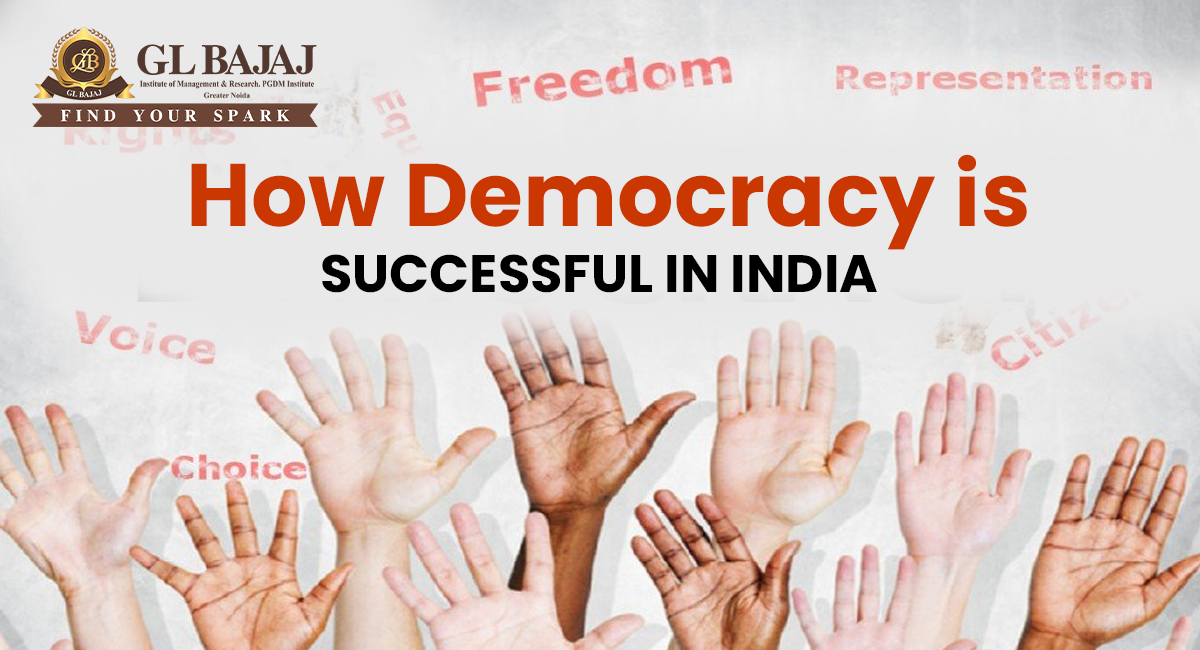India, often celebrated as the world’s largest democracy, has demonstrated the strength and spirit of democratic governance since independence in 1947. Despite its vast diversity and numerous challenges, India has managed to uphold democratic principles and create a system where the voice of its citizens is important.
A Victory of Diverse Voices
One of the most remarkable aspects of Indian democracy is its ability to accommodate an incredible range of cultures, languages, and religions. With 22 officially recognized languages and over 2,000 distinct ethnic groups, India is a mosaic of identities. This democratic framework allows for the peaceful coexistence and representation of this diversity. The parliamentary system, with its multiple parties, ensures that various communities and viewpoints are included in the political process.
Regular and Free Elections
India’s success as a democracy is also evident in its commitment to regular and free elections. Since the first general election in 1951-52, India has conducted 17 national elections and numerous state elections. The Election Commission of India, an autonomous constitutional authority, ensures the integrity and fairness of the electoral process. This has led to a robust participation rate, with voter turnout often exceeding 60%. For example, the 2019 general elections saw a record turnout of 67.1%, demonstrating the faith of the Indian populace in the democratic process.
Peaceful Transitions of Power
Peaceful transitions of power are a reflection of a healthy democracy, and India has consistently showcased this principle. Governments at both the central and state levels have changed hands through the ballot box without major upheaval. This stability is crucial for maintaining public confidence in democratic institutions. The seamless transfer of power after the 2014 general elections, when the Bharatiya Janata Party (BJP) won a decisive victory, is a true picture of India’s democratic maturity.
A Free Press and Judiciary
A free press and an independent judiciary are critical pillars of democracy, and India has both. The Indian media, often referred to as the fourth pillar of democracy, plays an important role in keeping the public informed and holding those in power accountable. Despite occasional challenges, the press remains a powerful watchdog. Similarly, the judiciary has consistently upheld the rule of law and protected individual rights. Landmark rulings, such as the decriminalization of homosexuality in 2018, highlight the judiciary’s role in advancing social justice.
Civic Participation and Activism
Indian democracy flourishes on civic participation and activism. Civil society organizations and grassroots movements have been instrumental in advocating for social change and policy reforms. The Right to Information (RTI) Act of 2005, which empowers citizens to access government information, emerged from sustained activism and has become a powerful tool for transparency and accountability.
Challenges and Resilience
While Indian democracy has many successes, it is not without challenges. Issues such as corruption, economic disparity, and communal tensions occasionally tarnish the democratic experience. However, the strength of Indian democracy lies in its ability to confront and address these issues. Public protests, judicial interventions, and media scrutiny often bring these challenges to the forefront, prompting corrective actions.
Anecdotal Evidence: The Power of the Ballot
An anecdote that captures the essence of Indian democracy is the story of Shyam Saran Negi, a retired school teacher from Himachal Pradesh, who became India’s first voter in 1951. Since then, he has voted in every general election, symbolizing the enduring spirit of democratic participation. His dedication reflects the belief of ordinary citizens in the power of the ballot to shape their country’s future.
India’s democratic success is a true picture of its ability to welcome diversity, uphold electoral integrity, ensure peaceful transitions of power, and maintain a free press and judiciary. The active participation of citizens and the soundness of institutions continue to strengthen Indian democracy. As India progresses, it remains a beacon of democratic hope, demonstrating that despite challenges, a nation can flourish by empowering its people and upholding democratic values.
